Do you ever feel like you totally know something? Like you’re so sure you know it that you’d bet your life on it? Have you ever found out it’s not true?
That happened to me this week. I’d been believing some information, planning next year based on that information, and conveyed that information on to others. Then the truth-holder of that information told me that what I thought was wrong.

I was so sure I knew what was going on, and then it all changed.
I felt disjointed and disoriented because I’d gotten the information from the truth-holder. And I’d asked questions to confirm the information. I just couldn’t fathom that it was just suddenly suspect. I thought I was right and had based everything on that “rightness.” But it was wrong.
Finally, instead of struggling against its wrongness and upholding my efforts to securely know the information, I let it go. Why did I want to hold on to wrongness? What is really true? Let’s go with that.
The day before the conundrum, I read this quote by Jon Gordon.
“Confidence is important but there will be a time when our confidence is shaken. That’s why we need courage and an unshakable faith.”
As happens when learning, this lesson infiltrated most of my pondering moments this week—ultimately leading me to a Star.
The Most Gruesome Story In The Bible
Moses warned Israel “And there ye shall eat before the Lord your God, and ye shall rejoice in all that ye put your hand unto, ye and your households, wherein the Lord thy God hath blessed thee. Ye shall not do after all the things that we do here this day, every man whatsoever is right in his own eyes. For ye are not as yet come to the rest and to the inheritance, which the Lord your God giveth you.”
Until we come to the rest and to the inheritance of God—which in my reading is eternal life or at the least calling and election—I must be focused on doing the will of God, and refocusing when I lose sight of that.
For me, the book of Judges records the most troubling and horrific scripture stories, including the story that most revolts my soul. As I read Judges 19 again yesterday I paused. It records a gruesome story of a woman given to a mob, brutalized, and left for dead. Her husband’s initial reaction portrays the ultimate cowardice, and afterwards, his response seems astoundingly insensitive. Then he cries for vengeance by cutting her body into twelve pieces and mailing his wife’s carcass throughout Israel. WHY is this story in the scriptures? What is its purpose?
I read the Old Testament at least once a year and usually grit my teeth and somehow suppress my anger while reading the last few chapters of Judges to reach the balmy pages of Ruth. This time I stopped. I had to ask the questions I’d never asked. WHY is this here? What can I learn from this?
I thought about it during an entire temple session. I started seeing other options than the way I read it. I realized that it was like reading a text message—sometimes while the words are true, the emotional message may be widely misinterpreted. But still I wrestled with it.
I tried to see some good in the husband or self-sacrifice in the concubine. I tried reading the words with different emotions. I tried to see the story as some metaphor for the Savior, like most other stories are. But I couldn’t find peace.
That Which Was Right In His Own Eyes
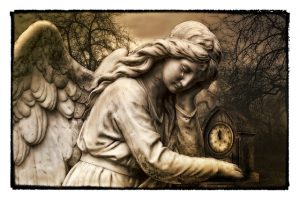
I cringe reading the horrors in the scriptures. Why are they recorded?
Even finding some good, reconciliatory qualities in the Levite husband, I thought more than once, it never says he asked God or followed God’s directions. Basically, there was no mention of God’s hand in these chapters. I recognized rational, logical deductions. But where was God?
As I reviewed the chapters again, I realized these violent and disturbing stories are flanked with two incredibly powerful scriptures:
Judges 17: 6 “In those days there was no king in Israel, but every man did that which was right in his own eyes.”
And the very last verse in Judges, Judges 21:25: “In those days there was no king in Israel: every man did that which was right in his own eyes.”
Suddenly, I saw the lesson for me. This story is a warning on every level imaginable. Where do I stand in doing that which is right in my own eyes?
As Lightning Falls From Heaven
I remembered how Mormon described the people during his time—how they willfully disobeyed and the Spirit of God left them. They became a hardened and blood thirsty people, delighting in bloodshed.
I remembered the Nephite and Lamanite version of Judges 19, though without the personal, horrific details. Mormon’s description is enough.
“For behold, many of the daughters of the Lamanites have they taken prisoners; and after depriving them of that which was most dear and precious above all things, which is chastity and virtue—And after they had done this thing, they did murder them in a most cruel manner, torturing their bodies even unto death; and after they have done this, they devour their flesh like unto wild bests, because of the hardness of their hearts; and they do it for a token of bravery.”
“Behold, my son, I cannot recommend them unto God lest He should smite me.”
Mormon then laments the Nephite’s fall just as others lamented the fall of the Shining One, the Light Bringer, a Star, also known as Lucifer. Lucifer stood as a Sign at the right hand of God until he decided to do that which was right in his own eyes.
“I beheld Satan as lightning fall from heaven.” A cataclysmic supernova.
“This we saw also, and bear record, that an angel of God who was in authority in the presence of God, who rebelled against the Only Begotten Son whom the Father loved and who was in the bosom of the Father, was thrust down from the presence of God and the Son, and was called Perdition, for the heavens wept over him—he was Lucifer, a son of the morning. And we beheld, and lo, he is fallen! Is fallen, even a son of the morning!”
He became Satan, who stirs hearts to iniquity, who seeks to deceive, who incites to anger, revenge, and bloodshed, who endeavors to turn hearts from truth, who doesn’t know the mind of God, and who seeks to alter words.
Nevertheless, Not My Will But Thine Be Done
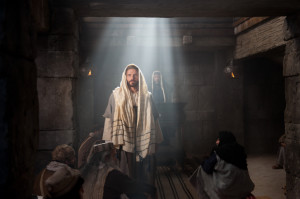
Jesus Christ is the Light of the World.
I have this image of an ashy black, dying, coughing, smoke cloud purporting itself as counterfeit to the Sun, the Bright and Morning Star, the Light of the World.
A true Star, fixated on by the wise men led them to the Savior. Herod couldn’t see that star.
“And, lo, the star, which they saw in the east, went before them, till it came and stood over where the young child was. When they saw the star, they rejoiced with exceeding great joy.
And when they were come into the house, they saw the young child with Mary his mother, and fell down, and worshipped him: and when they had opened their treasures, they presented unto him gifts; gold, and frankincense, and myrrh.”
He is the Sun, “which truth shineth. This is the light of Christ. As also he is in the sun, and the light of the sun, and the power thereof by which it was made.”
The Light that Pierces All Darkness.
He is the Light that pierces all darkness.
“Just at this moment of great alarm, I saw a pillar of light exactly over my head, above the brightness of the sun, which descended gradually until it fell upon me. It no sooner appeared than I found myself delivered from the enemy which held me bound.
When the light rested upon me, I saw two Personages, whose brightness and glory defy all description, standing above me in the air. One of them spake unto me, calling me by name and said, pointing to the other—This is My Beloved Son. Hear Him!”
Jesus Christ proved, in every way, that He singularly fixed His eyes on the Father’s will. Through every temptation of man and demon, through physical affliction, through betrayal and blindness of friends, He aligned His will with God’s.
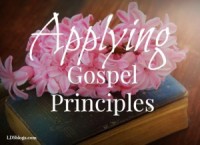
To read more of Delisa’s articles, click here.
He said, “My meat is to do the will of him that sent me, and to finish his work.” Amazingly, the work of the Father involves our complete salvation.
Jesus understands the darkness that besets us and offers His light to us. If we accept it, all wrongs will be evident, courage to course correct will be given, but more importantly, we will come to know and understand the will of God and rejoice in our unity of purpose with the Father and the Son.
“If your eye be single to my glory, your whole bodies shall be filled with light, and there shall be no darkness in you; and that body which is filled with light comprehendeth all things.”
I am a member of The Church of Jesus Christ of Latter-day Saints. I have moved 64 times and have not tired of experiencing this beautiful earth! I love the people, languages, histories/anthropologies, & especially religious cultures of the world. My life long passion is the study & searching out of religious symbolism, specifically related to ancient & modern temples. My husband Anthony and I love our bulldog Stig, adventures, traveling, movies, motorcycling, and time with friends and family.

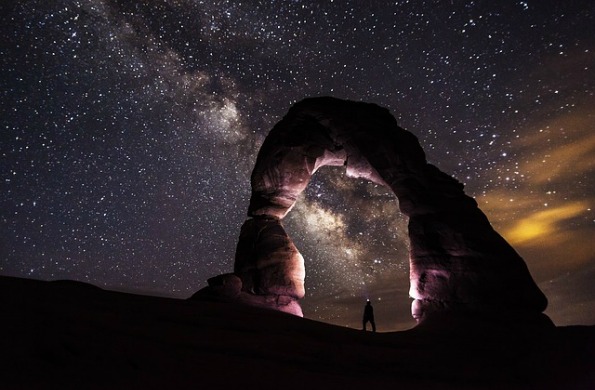
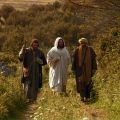
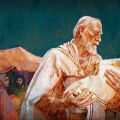
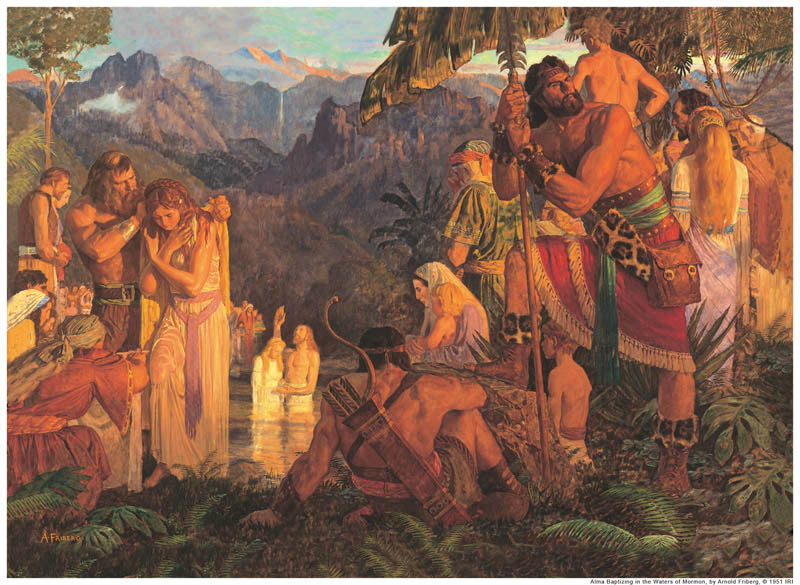
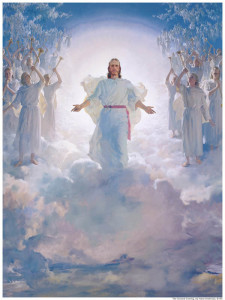

I love the struggles you share. Often it’s in those struggles that we gain the insights into the greater meaning of the atonement. In my patriarchal blessing the Lord tells me in mortality I will have the opportunity to see the evil acts of men so I can more fully understand the love that God the Father has for his children. To taste the bitter to be better able to appreciate the sweet. When we truly realize where we came from the why we are here made much more sense. Can we believe, trust, love and endure in hope for that day when we will be invited home knowing first-hand the difference between good and evil being grateful for the lessons we suffered during our mortal life?
I love the struggles you share. Often it’s in those struggles that we gain the insights into the greater meaning of the atonement. In my patriarchal blessing the Lord tells me in mortality I will have the opportunity to see the evil acts of men so I can more fully understand the love that God the Father has for his children. To taste the bitter to be better able to appreciate the sweet. When we truly realize where we came from the why we are here made much more sense. Can we believe, trust, love and endure in hope for that day when we will be invited home knowing first-hand the difference between good and evil being grateful for the lessons we suffered during our mortal life?
This is so beautiful, Charlie! Thank you for sharing!
The book of Judges is a deliberately awful text. The ancient Jews wrote it apologetically to justify having kings, even though monarchies are deeply flawed forms of government. The argument is having no government at all, where every does whatever they want, is even worse. The book of Judges cherry picks the worst of the worst to show a flawed king is better than no king.
The counter to the book of Judges is the book of Ruth. Boaz would have been one of the “Judges” of Israel at that time, but he is a good man with good values, not a monster. So, the book of Ruth is kept separate from Judges. It shows not all of the Israelites we wholly corrupt.
When you read the book of Judges, you have to take it as the equivalent of modern tabloids, where the most salacious stories lead. The book of Judges in no way represents average daily life among Israelites any more than trashy tabloids represents average daily life among us.
Thank you for sharing your insights. I am struggling with certain stories as well and trying to understand them. I appreciated reading your thoughts on the matter.
So glad this post was able to help you, Jess!
Thank you, Jess! As I’ve read with intent to understand how stories apply to me versus trying to understand the stories based on my cultural biases (etc), that’s really helped open my mind to being taught by the Holy Ghost. The other perspective that really shifted my understanding of scripture stories is to find ways that the story typifies Christ. I’ve seen aspects of His life I’d never considered come to life as I’ve read the scriptures (even the most horrible stories) with the intent to understand the Savior’s mission, human experience, and sacrifice more fully. I hope you find the same assurance as you wrestle with understanding the stories as well.